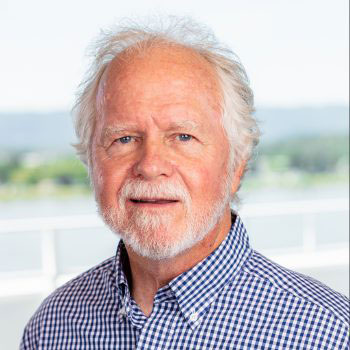Back to series



Fix Your Eyes Upon Jesus:
Click here to open Print- Friendly PDF
The vocation of N.T. Wright and the vocation of the Church in the world
Film is a window into the human heart. Like all art, anytime and anywhere, it both reflects and promotes a culture’s understanding of itself, its hopes and dreams, its glories and its shames, its beliefs about reality and truth, about right and wrong, what is to be prized and what is to be despised. For that reason, we cannot “leave our brains at the box-office,” as one of my teachers told me years ago. He taught me to take pen and paper into the theater, urging that it would prompt me to think about what I was seeing, remembering to remember that the celluloid story was an argument about the meaning of life. So I still do that.
A couple years ago I was in California for several days, speaking at several colleges, and one night I saw a film called The Green Mile, which features Tom Hanks as the chief guard on death row. His job is to care for the prisoners before they walk “the green mile,” i.e., the hallway between their cells and the electric chair. Though Hanks does a wonderful job of acting the part of a benevolent prison guard who humanizes his place of service through acts of mercy, the screen is soon dominated by a giant of a man, whose story is the heart of the film. Condemned to die for a crime he did not commit, he has the most unusual gift: he can take into his own body the bruises and brokenness of others, and transform them—seemingly for love’s sake. There is no 1-2-3 correspondence between its images and anything else I know of in this universe... and yet, the images are powerful, very powerful.
One line in the film specially struck me. As the wrongly condemned prisoner explains the strangeness of his sight to Hanks—what he sees with the eyes of his heart—he tearfully tells of so many situations which are wrong and unfair and sad, summing it up with these words, “That’s the way it is every day, all over the world.” Yes, hundreds of thousands of times... every day, all over the world.
As I sat in the theater, musing over the movie, I found myself thinking of images and ideas from the work of N.T. (Tom) Wright. There is no theologian who has so captured my attention as he has over the last several years, writing with an unusual pastoral heart about some of the most important biblical themes of our day, and any day. In particular, he offers this vision, which is what helped me to see The Green Mile as a reflection upon vocation, living one’s life in imitation of Christ, stretched between the glory of God on the one hand, and the sorrows of the world on the other:
We need Christian people to work as healers: as healing judges and prison staff, as healing teachers and administrators, as healing shopkeepers and bankers, as healing musicians and artists, as healing writers and scientists, as healing diplomats and politicians. We need people who will hold on to Christ firmly with one hand and reach out with the other, with wit and skill and cheerfulness, with compassion and sorrow and tenderness, to the places where our world is in pain. We need people who will use all their God-given skills... to analyze where things have gone wrong, to come to the place of pain, and to hold over the wound the only medicine which will really heal, which is the love of Christ made incarnate once more, the strange love of God turned into your flesh and mine, your smile and mine, your tears and mine, your patient analysis and mine, your frustration and mine, your joy and mine. (For All God’s Worth, p. 101)
I know that I need to have visions like this set before me, if I am to have the theological grist to be able to sustain my responsibilities and relationships living as I do with the brokenness of the world in and around me. His words make sense of what I know and how I want to live. I wonder how you read them? This past month Wright came to lecture for the Institute, and hundreds of folks came from all over the area to hear him speak about the nature of Christian hope. The core of his concern was this: that the life, death, and resurrection of Jesus has far-reaching consequences affecting life in every way, from the most personal concerns to the most public convictions. For many, his vision of the history of redemption, seeing an integral connection between a life of faith, hope, and love here, and its meaning for the future new heavens and new earth, was profoundly challenging and deeply nourishing. As one friend put it: “I have always thought of heaven as a place for my disembodied soul. It changes everything if we are moving to new heavens and a new earth, and if there is a real link between my life here, and the future, if what I do now is part of the kingdom which is coming.”
Tom Tarrants, President of the Institute in reflecting midway through the talks that listening to Wright was a bit like “drinking from a fire hydrant,” said that tapes would be available for further pondering. In addition we also want to offer a way into Wright’s heart and mind through his writing, both for those of you who were there at The Falls Church for his lectures and for those who are eager to learn and listen through his books.
Simply said, he has written something for everyone. From basic apologetics for the historicity of the person and teaching of Jesus, through many shorter collections of homilies and meditations about the person and teaching of Jesus, onto discipline-transforming scholarship on the first-century Palestinian cultural context of the person and teaching of Jesus, he has chosen to serve in a preaching and teaching ministry set within the colleges and cathedrals of the Church of England; his current appointment is as Canon Theologian of Westminster Abbey in London. But plainly, the thread running through all that he does is a single-hearted focus upon the person and teaching of Jesus. It is not too much to say that he has taken up a vocation in which he has fixed his eyes upon Jesus.
Looking back at my bookshelf, his writings take up a good foot of space. Here are a few that I think you might enjoy.
The Lord and His Prayer
(Eerdmans, 1996.) The Lord’s Prayer is one of our truest windows into the very heart of God. It is not a small thing that the Church in every generation has chosen it as a means of catechism, teaching the contours of the faith through its petitions. Wright’s reflections take up that task in our time, and are both theologically rich and pastorally attentive, which is his great gift throughout his writing.
Following Jesus: Biblical Reflections on Discipleship
(Eerdmans, 1994.) A series of 12 homilies on New Testament books and themes, here he brings his unusual scholarly skill to bear in sifting through all that might be said, and brings to focus critical ideas and images which lead the eager reader to learn more about the nature of a discipleship rooted in a growing knowledge of Jesus. (The class I have been leading at The Falls Church this fall, studying Wright’s work, has used this as one its texts.)
Reflecting the Glory: Meditations for Living Christ’s Life in the World
(Augsberg, 1998.) A collection of 53 devotional readings based on New Testament passages which dayafter-day draw one into meditations on the vocation of Jesus, and its relevance for ours. (This is the other class text.)
For All God’s Worth: True Worship and the Calling of the Church
(Eerdmans, 1997.) A coherent life is only possible if there is an integral relationship between one’s worship, one’s worldview, and one’s way of life. Here Wright explores what that looks like, learning to love and worship God while living with the pressures of a fragmenting culture and world.
The Challenge of Jesus: Rediscovering Who Jesus Was and Is
(IVP, 1999.) This grew out of a series of lectures which Wright gave to a Chicago gathering of IVCF faculty and graduate students several years ago, who were there to reflect upon the meaning of the gospel for the push-and-pull of vocational and disciplinary responsibilities. In the last chapter, he wonders about “an epistemology of love,” which in part grew out of a conversation he and I had at the conference, and which has been remarkably fruitful for me.
The New Testament and the People of God and Jesus and the Victory of God
(Fortress, 1992; 1996, respectively.) These are the firstfruits of his proposed five-volume series which are written for his colleagues in New Testament studies (and for anyone really serious about the first-century cultural context of the gospel). Each are major studies, and have already elicited one volume written by other New Testament scholars who are responding to the ground-breaking nature of his work. Intriguingly, words like “story” and “worldview” substantially shape the chapter headings and outline. One more time, his deep interest is in recovering the historicity of Jesus’s teaching; for contrast sake, he is the principal antagonist to the Jesus Seminar, the “scholars” who meet in very public settings to decide together what belongs in the Bible and what does not. Somehow, clearly by grace, he has found a way to love these people and honor them as human beings, even as he has so deeply disagreed with them.
It is an unusual vocation he has followed, trying to love the Church and the world through his scholarly labor. In doing so, the critics have come calling, from both sides which is to be expected, I suppose, for someone working so hard between those two worlds. For example, he speaks of his discipline of New Testament studies at “the place of pain” to which he is called to go, holding onto Christ firmly (see above quote) while he spends his days among people whose touchstone, whose starting point, is to deny the resurrection. His own words, which have been such a grace to me, must be first of all words for his own heart:
We discover that the story of Jesus’ ministry is not only the story of what he did in history, but encompasses also the vocation that comes to us in the present: that we should be, in the power of the Spirit, the presence of Jesus for the whole world. This discovery brings us the most remarkable joy and the most remarkable sorrow. This is our vocation: to take up our cross, and be Jesus for the whole world, living with the joy and the sorrow woven into the pattern of our days. (Reflecting the Glory, p. 10)
The life he writes about, one full of joy and sorrow, is the one that we all live. That Wright helps us remember that Jesus did too is his good gift to the Church as we live in the world.

Steven Garber
ProfessorSteven Garber is the Senior Fellow for Vocation and the Common Good for the M. J. Murdock Charitable Trust. As a teacher, he has recently served as Professor of Marketplace Theology and Director of the Masters in Leadership, Theology and Society at Regent College, Vancouver, BC. he is the author of several books, including Visions of Vocation: Common Grace for the Common Good, his most recent is The Seamless Life: A Tapestry of Love and Learning, Worship and Work. One of the founders of the Wedgwood Circle, and has been a Principal of the Washington Institute for Faith, Vocation and Culture. He completed his PhD in the Philosophy of Learning at Pennsylvania State University.

 COPYRIGHT: This publication is published by C.S. Lewis Institute; 8001 Braddock Road, Suite 301; Springfield, VA 22151. Portions of the publication may be reproduced for noncommercial, local church or ministry use without prior permission. Electronic copies of the PDF files may be duplicated and transmitted via e-mail for personal and church use. Articles may not be modified without prior written permission of the Institute. For questions, contact the Institute: 703.914.5602 or email us.
COPYRIGHT: This publication is published by C.S. Lewis Institute; 8001 Braddock Road, Suite 301; Springfield, VA 22151. Portions of the publication may be reproduced for noncommercial, local church or ministry use without prior permission. Electronic copies of the PDF files may be duplicated and transmitted via e-mail for personal and church use. Articles may not be modified without prior written permission of the Institute. For questions, contact the Institute: 703.914.5602 or email us.
-
Recent Podcasts
The Side B Stories – Adam Terry’s Story
by Adam Terry, Jana Harmon on April 26, 2024Adam Terry experienced an intellectual crisis of faith....Read More
-
A Welcome Change in Apologetics
by Randy Newman, Aimee Riegert on April 19, 2024
-
Questions That Matter Podcast – Samuel James and Digital Liturgies
by Samuel James, Randy Newman on April 19, 2024
-
Recent Publications
Isn’t Morality Relative?
by Christopher L. Reese on April 1, 2024It is widely accepted in the Western world...Read More
-
Do Muslims and Christians Worship the Same God?
by Andy Bannister on March 1, 2024
-
Artificial Intelligence and Its Impacts on Humanity
by John Lennox on February 13, 2024
0
All Booked
0.00
All Booked
0.00
All Booked
22140
GLOBAL EVENT: Keeping the Faith From One Generation To Another with Stuart McAllister and Cameron McAllister, 8:00PM ET
https://www.cslewisinstitute.org/?event=global-event-keeping-the-faith-from-one-generation-to-another-with-stuart-mcallister-and-cameron-mcallister-800pm-et&event_date=2024-05-17®=1
https://www.paypal.com/cgi-bin/webscr
2024-05-17

Next coming event
Days
Hours
Minutes
Seconds
GLOBAL EVENT: Keeping the Faith From One Generation To Another with Stuart McAllister and Cameron McAllister, 8:00PM ET
On May 17, 2024 at 8:00 pmSpeakers

Steven Garber
Professor
Team Members

Steven Garber
ProfessorSteven Garber is the Senior Fellow for Vocation and the Common Good for the M. J. Murdock Charitable Trust. As a teacher, he has recently served as Professor of Marketplace Theology and Director of the Masters in Leadership, Theology and Society at Regent College, Vancouver, BC. he is the author of several books, including Visions of Vocation: Common Grace for the Common Good, his most recent is The Seamless Life: A Tapestry of Love and Learning, Worship and Work. One of the founders of the Wedgwood Circle, and has been a Principal of the Washington Institute for Faith, Vocation and Culture. He completed his PhD in the Philosophy of Learning at Pennsylvania State University.




